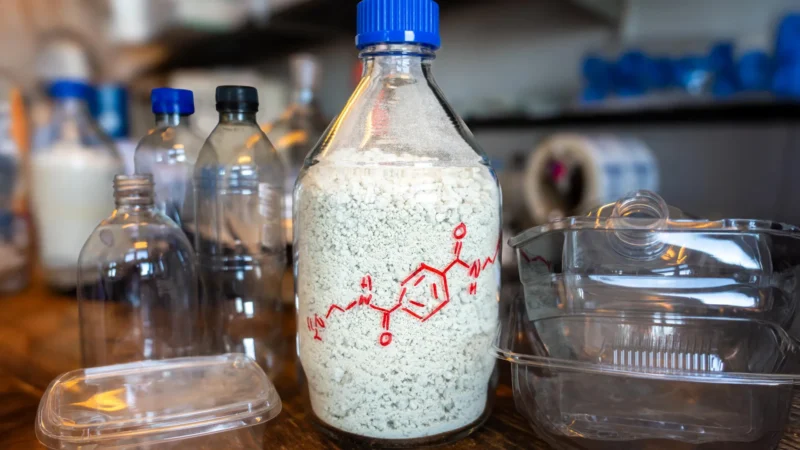Summary Points
-
Transforming Waste into Resource: Researchers at the University of Copenhagen have developed a method to convert PET plastic waste into BAETA, an efficient CO2 capture material, addressing both plastic pollution and climate change.
-
Innovative CO2 Capture Technology: BAETA effectively absorbs CO2, performing comparably to existing technologies, and can be industrially scaled while operating at ambient temperatures, making it a sustainable option for carbon capture.
-
Dual Solution for Environmental Issues: This technology not only repurposes hard-to-recycle plastics, potentially cleansing oceans of waste, but also provides a significant economic incentive for environmental cleanup efforts.
-
Collaboration with Recycling Efforts: The method complements existing recycling initiatives by targeting low-quality PET plastics unsuitable for recycling, ensuring it does not undermine current recycling efforts while contributing to a circular economy.
A Dual Solution for Environmental Challenges
Scientists at the University of Copenhagen have made groundbreaking strides in addressing two pressing issues: plastic waste and rising CO2 levels. By transforming discarded PET plastic into a new material called BAETA, they create an efficient tool for carbon capture. This innovative process not only repurposes plastic that would otherwise pollute the environment but also actively combats greenhouse gas emissions. The effectiveness of BAETA rivals existing carbon capture technologies, making this a promising solution.
As global CO2 concentrations continue to rise, the impact of plastic pollution becomes increasingly dire. This new research offers a way to address both crises simultaneously. The method allows for the upcycling of plastic waste into a valuable resource, highlighting how interconnected environmental challenges can have shared solutions. By turning waste into a tool for climate action, this research sparks hope for a more sustainable future.
Bridging Research and Real-World Application
The potential of BAETA extends beyond the lab. Researchers envision its application in industrial settings, where it can filter CO2 emissions from factory exhausts. The technology is designed to be scalable, making it suitable for widespread implementation. Moreover, it addresses concerns about hindering recycling efforts, as BAETA targets non-recyclable PL plastic waste.
Investing in this innovative solution could unlock new economic opportunities, particularly in regions burdened by plastic waste. If decision-makers embrace this research, it could revolutionize how we view both plastic waste and climate solutions. The transformation of harmful plastic into a climate-positive resource exemplifies the human capacity for ingenuity in the face of environmental challenges.
Continue Your Tech Journey
Dive deeper into the world of Cryptocurrency and its impact on global finance.
Explore past and present digital transformations on the Internet Archive.
TechV1

